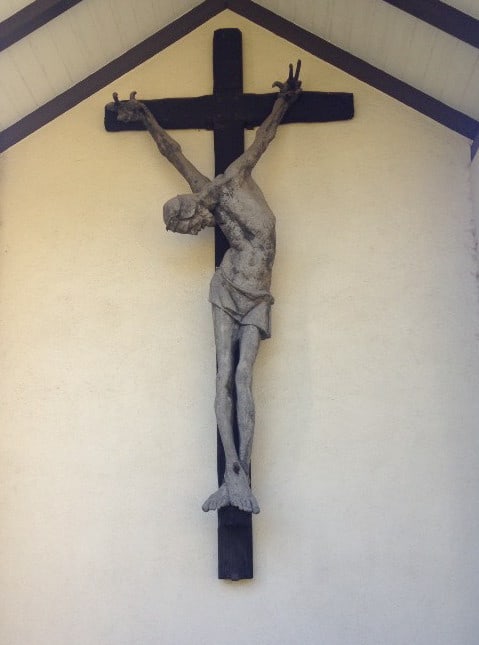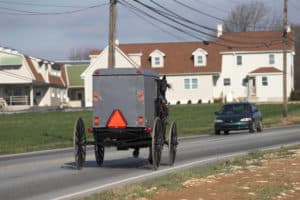
Tonight I will be joining followers of Jesus throughout the world and throughout time as we remember the suffering of Jesus. Our hearts and minds will be drawn, once again, to consider that God is neither aloof nor distant, but chooses to enter our shame and anguish, to stand in solidarity with all who are crushed, oppressed, dismayed and destroyed.
As long as I can remember I’ve lived out this annual rhythm — the anguish of Good Friday, the quiet despair of Saturday, the overwhelming joy of Easter Sunday.
But this year will be the first where I sit among the other worshippers as an openly gay person.
The community I’ve found here in Portland has become, for me, a lived-out expression of what Paul means when he says we must fill up the measure of the suffering of Christ. For followers of Jesus, the cross has never been merely an event that happened long ago, a cosmic exchange of debt. It is much more — it is a pattern, setting a cruciform agenda for those who would enter into the life for which we were designed. It turns out, Jesus is showing us, that love always and everywhere takes the form of suffering for the sake of another, and particularly for the overlooked, marginalized, distressed, and unwanted.
Those words have never really applied to me. I mean, like everyone I’ve had my share of bad days. But let’s face it — as a white, upper-middle class educated male living in America, I’ve had every advantage and head start one can get. So this past year, as I made the choice to come out as gay, resign from my position in an evangelical church and move to Portland, it’s been a very strange experience to suddenly find myself in some (still, admittedly, slight) ways marginalized. It is odd to show up at churches and wonder, am I wanted here? It’s strange to take a deep breath and answer truthfully the question of why I moved here, and watch people’s faces shift. (I don’t always answer truthfully — and faces don’t always fall when I do.) It’s painful to have many people I love believe I am deeply wrong and not know what to say to me.
But eventually I found a church home that feels right to me, and where I am welcomed. This community went through the painful work of broadening their practice of marriage to include blessing same-sex marriages. They lost many people along the way. It was painful.
It makes me wonder — who can I include? How can I lay down my comfort and privilege to look for someone who has no voice, and speak for them?
I came along after all this happened. And now, week after week, I sit among these people and cry.
I cry because they made room for me, when they did not have to. I cry because before I was there, people suffered through hard conversations, relational losses and uncertainty so that when I came in the room I would feel wholly accepted. I cry, as my spiritual director pointed out, because there was a part of me that believed I would never find a church family again.
And so I sit and cry. And laugh. And thank God unceasingly for the willingness of others to suffer for the sake of others.
But it doesn’t stop there. This community’s example inspires me. It makes me wonder — who can I include? How can I lay down my comfort and privilege to look for someone who has no voice, and speak for them? This is what happens when you are loved sacrificially. The world stops looking like a place of scarcity, but one of abundance. You start to wonder how you can give what you have received.
That is Good Friday. This day we remember that, above all, the core reality of the universe is overflowing generosity, inclusion, making room, and willingness to suffer for the sake of others. And this day we are invited to join in God’s kind of life: which, in this world, looks like a cross.
Ben Barczi served as Pastor of Spiritual Formation for over a decade at First Baptist Church, San Luis Obipso, CA. A graduate of the Renovaré Institute for Spiritual Formation, he is now a spiritual director and an M.Div student at George Fox Evangelical Seminary. He lives in Portland, OR, with his virtuous dog, Arete. He also serves as a spiritual director for CSA’s Oriented to Love program.


